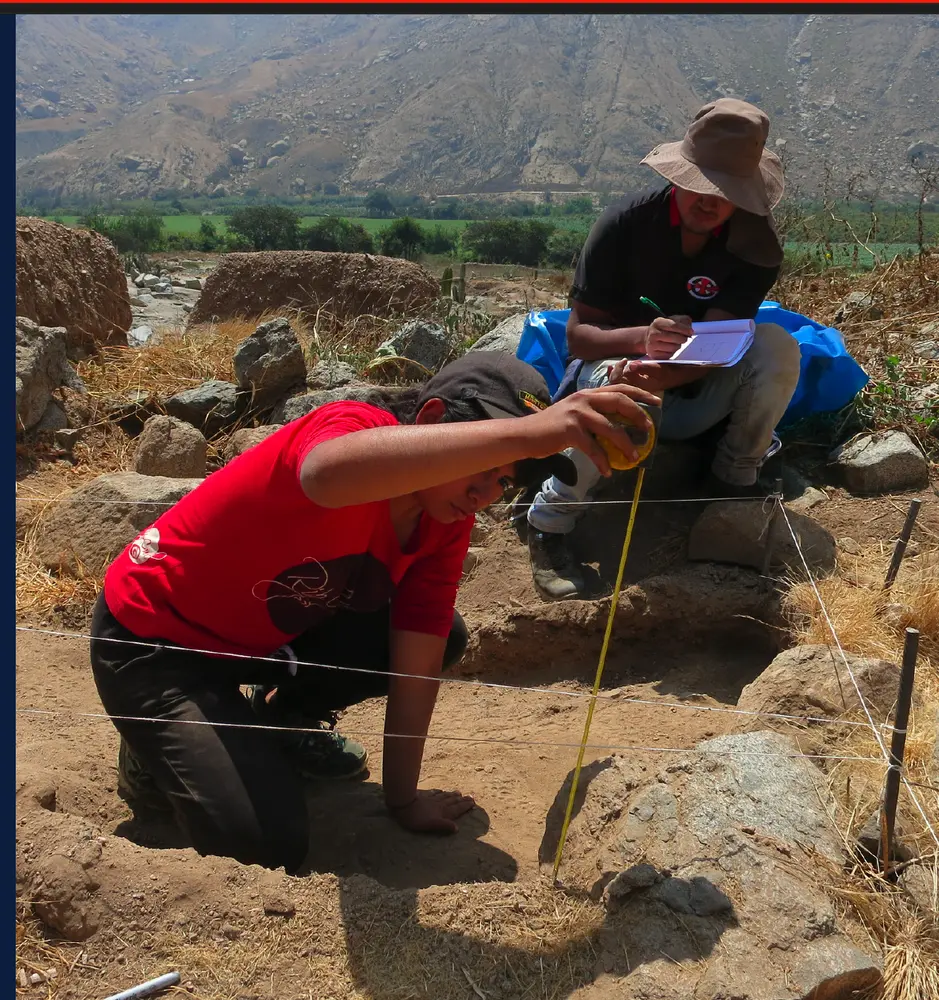
The Center for Latin American & Caribbean Studies is offering Archaeology Field School in Peru, The Ancient Politics of Human-Environment Interactions (LAST 395), with associate director, Kasia Szremski. An online information meeting will be held on Thursday, Feb. 3, at 12noon for those interested in this spring/summer course.
The course begins in Spring II session with the in-class portion providing course work in Andean archaeology and contemporary Peru. The 8-week course also gives students a background in fieldwork and what they need to be successful in the field. The summer class, tentatively scheduled for July 15 to August 15, will see the students traveling to Peru for the fieldwork. The largest amount of time will be spent conducting excavation at the Chancay site of Cerro Blanco (located about 3 hours north-east of Lima), but there will also be time for field trips to other archaeological and cultural sites. While in Peru, students will participate as active members of the Huanangue Valley Archaeology Project. This project is dedicated to understanding the ancient political economy of the Norte Chico, or Little North Coast. During the field school, the students will live and work closely with the residents of Sayan, as well as work with experienced archaeology students from Universidad Nacional Federico Villarreal
. They will receive training in drone mapping, spatial analysis in GIS, and artifact analysis. The students will research agriculture and local economies, the intersection between public ceremonies and trade/exchange, and identity and belonging through various excavations. Lessons will be provided on how mutual aid networks develop and the consequences that those networks had on local politics.
The course is open to students of all disciplines and will provide an opportunity to those students to use project data for honors thesis and/or capstone projects. The class is recommended for students interested in archaeology, anthropology, history, indigenous studies, political science, natural resource studies, climate change, and a host of other multi-disciplinary topics. While being fluent in Spanish is helpful, but not required, it is a great course for students interested in the language. There are no prerequisites, and the course is open to students of all disciplines.
Please register or join the Informational Meeting session on Thursday, Feb. 3 at 12noon here: Meeting Registration - Zoom
The Center for Latin American & Caribbean Studies, part of the Illinois Global Institute, is an area and global studies center focused on the Latin American region: its histories, challenges, and complex connections to the United States and other parts of the world. CLACS serves the students, faculty, and scholars at the University of Illinois Urbana-Champaign campus, along with communities from across Illinois and the Midwest, by promoting innovative research, specialist teaching, and public awareness of the issues, current and past, of Latin America and the Caribbean.